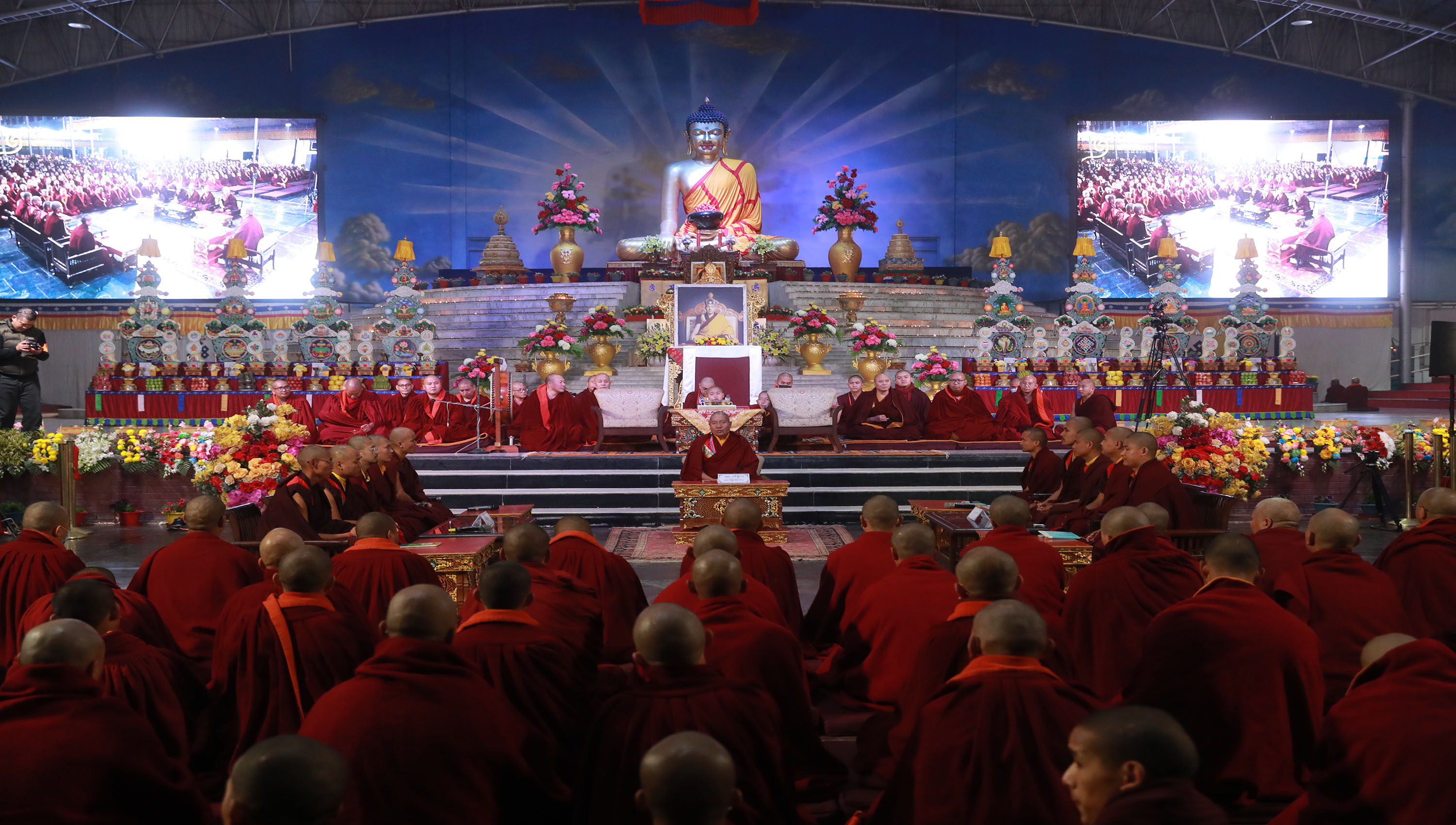Kagyu Monlam Pavilion,
Bodhgaya
19 January 2024
With mounting excitement and thunderous applause, the much-anticipated final debating event of the Kagyu Gunchoe kicked off during the Kagyu Monlam. His Eminence Yongey Mingyur Rinpoche, Tsoknyi Rinpoche, tulkus, khenpos, monastics and international devotees joined the thousands of shedra students for an evening of educational and entertaining debate.
“Western-style” debates were initiated by His Holiness the Gyalwang Karmapa in 2013, as part of his broader activities to restore the teachings of the practice lineage. These initiatives include the improvement of educational opportunities in monastic shedras so that the teachings, the institutions and the qualities of the monastics themselves can thrive. His Holiness has remarked that students who have a high degree of education but no experience in speaking can get bored. And so, to increase enthusiasm, students should have a chance to express themselves, inspiring faith and confidence. Western debates serve as a complement to traditional Tibetan debates. They promote skill development in public-speaking and rhetoric, in a format that all listeners from all backgrounds can readily understand, without specialist training in Tibetan logic and epistemology.
Western debating traditions predate the Buddha and can be traced back to the philosophical and political debates of the Athenian Democracy in Ancient Greece and the Shastrartha religious and philosophical debates of Ancient India. There are many different formats and styles of western debating.
Within the Kagyu shedras, the debate format consists of three rounds of argumentation alternating between two competing teams (supporting and opposing). Each team consists of five members from various Kagyu shedras. During the first round, one member from each team speaks for 10 minutes, followed by five minutes from the remaining team members. In the second round, each team member has three minutes of rebuttal to arguments made by the other team. Each team member then has one minute to summarize their positions in the final round. This is followed by approximately 10 minutes of questions from audience members.
The arguments and exchanges were lively, drawing upon scripture, logical reasoning and anecdote to support or oppose the resolution that education is more important than conduct. The supporting team quoted from Maitreya’s Ornament of the Mahayana Sutras:
The opposing team argued that conduct was more important than education, paraphrasing Nagarjuna:If they do not strive in the five areas of knowledge,
Even the supreme nobles will not become omniscient.
Therefore strive at them to defeat others,
Care for them and know all yourself.
If you have the behaviour of a good human,
You don’t have far to go to the divine realms
Passages were not limited to the Buddhist canon, for example one monk quoted from the Bengali polymath Rabindranath Tagore in Hindi.
The entire event was translated simultaneously into English over radio broadcast for the international attendees.



































